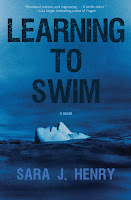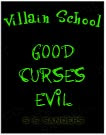Writer's Digest Conference
THIS EVENT DATE HAS PASSED; WATCH AGAIN FOR LIST OF ATTENDING AGENTS IN 2012
New post for the conference January 20-22, 2012
(YOU MISSED IT :0( January 21-23, 2011)
LIST OF AGENTS WHO TOOK PITCHES:
Andrée Abecassis (Ann Elmo Agency, Inc.)
Jason Allen Ashlock (Movable Type Literary Group)
Bernadette Baker-Baughman (Victoria Sanders & Associates)
George Bick (Doug Grad Literary Agency)
Brandi Bowles (Foundry Literary + Media)
Jamie Brenner (Artists and Artisans)
Regina Brooks (Serendipity Literary Agency)
Ann Collette's (Rees Literary Agency)
Marisa Corvisiero, Esq. (L. Perkins Agency)
Jennifer DeChiara (Jennifer DeChiara Literary Agency)
April Eberhardt (Kimberley Cameron & Associates)
Diana Fox (Fox Literary Agency)
Diane Freed (FinePrint Literary Management)
Adam Friedstein (Anderson Literary)
Mollie Glick (Foundry Literary + Media)
Doug Grad (Doug Grad Literary Agency)
Katie Grimm (Don Congdon Associates)
Naomi Hackenberg (The Elaine English Literary Agency)
Molly Jaffa (Folio Literary Management)
Meredith Kaffel (Charlotte Sheedy Literary)
Mary Kole (Andrea Brown Literary Agency)
Katie Kotchman (Don Congdon Associates)
Jud Laghi (The Jud Laghi Agency)
Sarah LaPolla (Curtis Brown, Ltd.)
Sandy Lu (L. Perkins Agency)
Donald Maass (Donald Maass Literary Agency)
Alexandra Machinist (Linda Chester Literary Agency)
Victoria Marini (Gelfman Schneider Literary Agents)
Jim McCarthy (Dystel & Goderich Literary Management)
Kate McKean (Howard Morhaim Literary)
Peter Miller (PMA Literary and Film Management, Inc.)
Robin Mizell (Robin Mizell Ltd.)
Shawna Morey (Folio Literary Management)
Emmanuelle Morgen (Judith Ehrlich Literary Management)
Dana Newman (Dana Newman Literary)
Kathleen Ortiz (Lowenstein Associates)
Lori Perkins (L. Perkins Agency)
Adriann Ranta (Wolf Literary Services)
Janet Reid (FinePrint Literary Management)
Chris Richman (Upstart Crow Literary)
Rita Rosenkranz (Rita Rosenkranz Literary)
Elizabeth Winick Rubinstein (McIntosh & Otis)
Katharine Sands (Sarah Jane Freymann Literary)
Katie Shea (Caren Johnson Literary)
Jessica Sinsheimer (Sarah Jane Freymann Literary)
Michael Strong (Regal Literary)
Becca Stumpf (Prospect Agency)
Emily Sylvan Kim (Prospect Agency)
Suzie Townsend (FinePrint Literary Management)
Joanna Volpe (Nancy Coffey Literary & Media Representation)
Marissa Walsh (FinePrint Literary Management)
Elisabeth Weed (Weed Literary)
Roseanne Wells (Marianne Strong Literary Agency)
Natanya Wheeler (Nancy Yost Literary Agency)
John Willig (Literary Services, Inc.)
Christine Witthohn (Book Cents Literary Agency)
Michelle Wolfson (Wolfson Literary Agency)
Don't let this ship sail without you!! (your choice...fishing boat or cruiseliner :0)
CLICK HERE TO LEARN ABOUT THE AGENTS AND THEIR SPECIFIC INTERESTS
















































